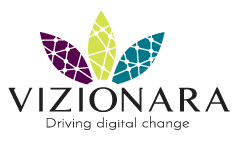Like most organizations, we are all climbing the learning curve on A1 to accelerate our ability to drive team productivity and engagement.
Our team of IT professionals continue to add AI capabilities to their toolkit as we help clients deliver strategic digital initiatives and business transformation.
In the face of evolving AI technology, we recently ran a workshop focused on how to leverage AI to drive productivity as program managers in order to get higher quality results with greater efficiency.
In our daylong session led by an industry leading data analytics and AI expert, we dug into generative AI examples with tangible business impacts, reimagining work and how AI can support a well-honed business strategy, as well as exploring some AI use cases and tooling so that we could experiment with our own project use cases.
The session was energizing for the team and changed our ideas about how we work.
Some of the key takeaways from the workshop included:
- Business readiness is critical to effectively using AI. Start by thinking through what your business objectives are and what your team needs to better meet those objectives. Instead of creating an AI strategy, build a business strategy and then figure out how AI can support it.
- Having a strong data foundation is essential to leveraging AI. If you don’t have high quality data, you’re not going to get the results that you need to drive measurable impact. Without a data strategy, a company can’t effectively see a return on their AI investment.
- Governance, security, and policies need to be in place to manage data use and set AI guardrails. Starting with governance also helps to understand your risk profile, ensure compliance with industry regulations and set the foundation for ethical use of the technology.
- Make sure to protect your data as you use various AI tools that could expose sensitive information outside your network. Know what data you’re using internally versus what data you’re using externally and make sure your team knows the difference between being on an enterprise platform versus a public platform.
- Critical thinking is an essential part of using AI. Consider AI tools as the assistant, not the driver. Review AI results and apply critical thinking skills along with your professional and personal knowledge. Validating the information will minimize risks and ensure more reliable outcomes.
Overall, this workshop sparked new ideas and offered new perspectives on work we’ve been doing for decades. It’s exciting, motivating, and engaging to explore new approaches, and step outside our usual ways of working to think differently. The experience aligned with our company culture of innovation and lifelong learning. We discovered AI use cases we could apply immediately and were inspired to reimagine how we could better serve our clients by leveraging AI as a catalyst for change.
If your company is trying to figure out the next steps on your AI journey, we’d love to partner with you either through similar customized workshops for your team or as part of our AI transformation services.
Reach out via our Contact Us page to get started on the next phase of your journey.






